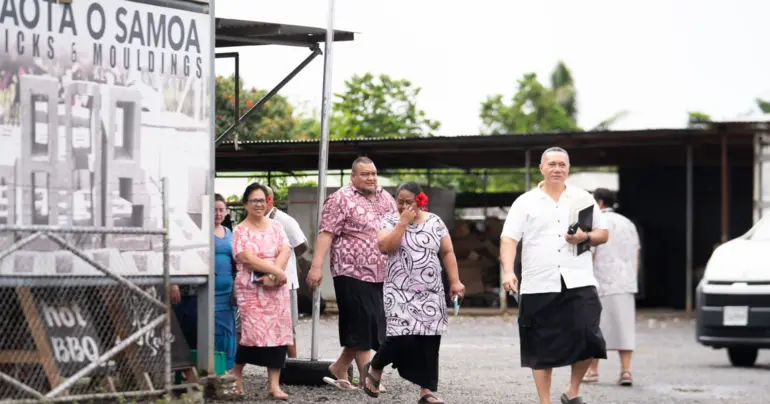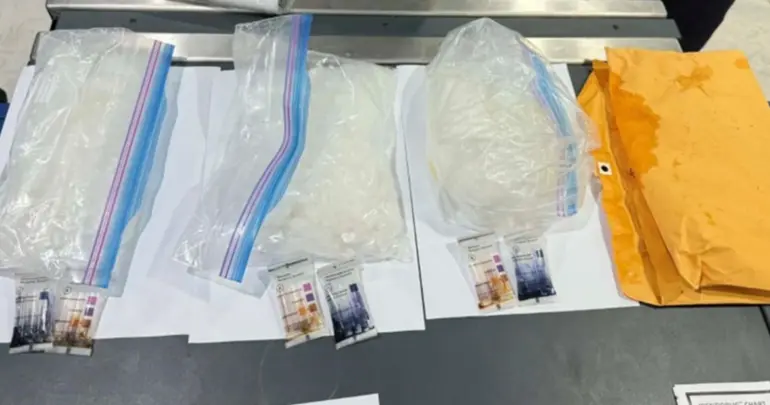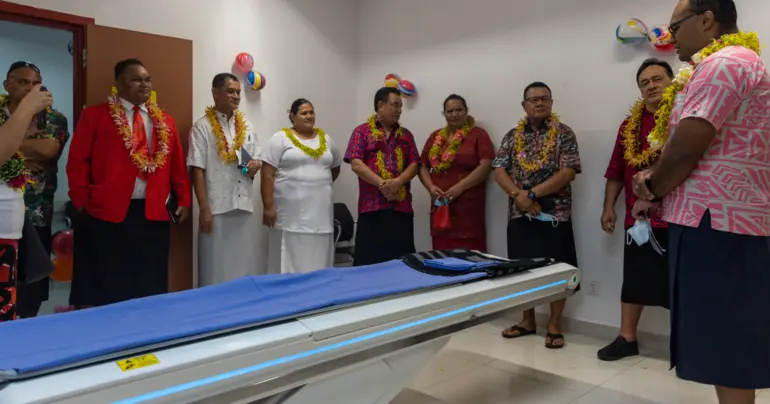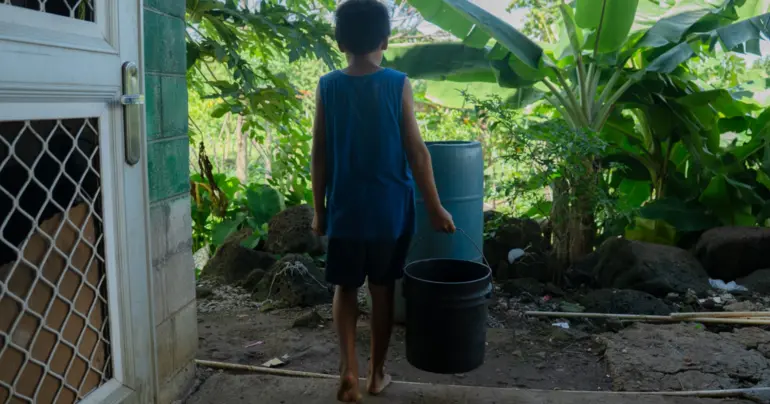Escape symbolises Police's uphill crime battle
 By The Editorial Board
•
21 January 2021, 12:00AM
By The Editorial Board
•
21 January 2021, 12:00AM
Patti Chong Nee, a convict now on the run for two years, who, on Tuesday, evaded a more than 50 strong raid by Police officers at Faleatiu, brings to mind history’s most famous fugitives.
Is Nee Samoa’s version of the mythical American serial criminals and lovers Bonnie and Clyde - he is suspected of hiding out with a woman known only as ‘Pepe’ - who ultimately met a sticky end?
Perhaps. But most importantly he is a personification of the many causes and issues behind crime in Samoa and the challenges we face in eliminating it.
Tuesday’s raid suggested it was highly unlikely that the escapee, whom Police will allege has been growing marijuana in the mountains, has been able to evade Police for so long alone.
There are evidently tight-knit criminal networks at work and they appear to be growing in sophistication.
Police have done an admirable job of seeking to disrupt them recently.
These range from a 2019 raid, said to have been the largest in Samoa’s history, which led to the capture of 10,000 marijuana plants, firearms, methamphetamine, ammunition and cash.
More recently, last December Police executed another armed raid in the village which netted them three arrests and another 4000 marijuana plants.
For these efforts, including yesterday’s, we give due praise to the Police Commissioner, Fuiavailili Egon Keil.
Despite Tuesday’s operation failing to capture its main target it still led to the arrest of one man and the seizure of a small number of cannabis plants and seedlings.
More important is what the raids symbolise. The forests of Faleatiu have long been ground Police have been reluctant to cross due to the risk of violent response, despite intelligence long suggesting it has been central to the national drug trade.
But Fuiavailili has changed these rules.
With assistance from technology such as surveillance drones, he has turned these forests from being a place where criminals feel able to wander with impunity to one where they know they are being watched.
That alone is a significant change in the balance of power between the nation’s criminals and Police.
Following the raid, Commissioner Fuiava, spoke transparently about how Tuesday’s raid was conducted but also the extent to which Police entry has changed the dynamics on the ground in Faleatiu.
“The good thing about this whole thing here is that Faleatiu is clean, we have been everywhere and we used drones as well to the top of the mountains and the sides of the mountains, and we dipped into Satapuala too and it is clean,” the Commissioner said.
But despite that success, it would be extremely premature to make any judgments about the long term effects of such raids on the drug trade as itself.
The Commissioner himself noted the march on Faleatiu should not be viewed as a mission accomplished moment for drug crimes in Samoa.
As the Commissioner himself knows well from his time in the Los Angeles Police Force, the impact of any single raid on drug dealers is dubious when a long view is taken.
This is due to the phenomenon of displacement, something which has frustrated the United States’ long battle against the flow of drugs into that country.
To put it crudely, the drug trade is like a balloon: clamping down on one section, often simply leads to a corresponding bulge in activity elsewhere.
As Fuiava said himself yesterday Police are likely facing an uphill battle despite Tuesday’s victory: “What worries me is that they could go and grow in another village and cut this area because the Police are always coming to Faleatiu.”
The same factors that have led to the ongoing production and flow of drugs - much of the world, from Afghanistan, North and South America and southeast Asia - all affect the drug trade in Samoa.
Selling drugs on the black market at a premium is vastly more profitable than growing other crops. And, so long as demand continues, it is likely to be met.
Fuiava and the men and women who wear the Samoa Police Service face a challenge that is much broader than any individual plantation farms.
Like Police, drug dealers are becoming more inventive.
The Police on Tuesday came across booby traps, which the Commissioner revealed included rocks tied to trees, designed to damage Police vehicles and doubtlessly provide early warnings.
More broadly though the root causes of crime are beyond the Police’s control. And with starting salaries for new Constable recruits running as low as $12,000 a year, it is clear that the Police force is dealing with constraints of its own.
Those challenges coincide witha an August report of a 25 per cent hike in the national crime, across all categories of offending.
We do not find this figure surprising.
As was reported this week, rates of youth unemployment essentially doubled between 2012 and 2017 to reach almost 32 per cent. That also coincided with an increase in students’ dropout rates from school, as they needed to support their families.
Combined with the more recent lack of economic opportunities and activity caused by national border closures, we expect this figure to have surged.
But taken together these factors create a potent mix to lure people into a life of crime and or drug abuse.
The Police’s task is also made more difficult by the tools of the criminal trade which are obviously making their way into the country.
Police intelligence that Nee himself is armed with a shotgun and a pistol is proof that smuggling continues to contribute to Samoa’s crime problems.
There has also been no shortage of examples from the court of a large backlog in criminal cases combined with a contraction in the number of prosecutors, which is a recipe for failed convictions and the desire to deter captured suspects.
So we applaud Fuiava’s efforts to track down Nee; their obvious foundation in intelligence gathered; its effect on one of the nation’s most notorious drug centres; and the bravery shown by his officers.
But Nee evading officers once more is symbolic of Police successes continuing to be frustrated by criminal advances.
 By The Editorial Board
•
21 January 2021, 12:00AM
By The Editorial Board
•
21 January 2021, 12:00AM










